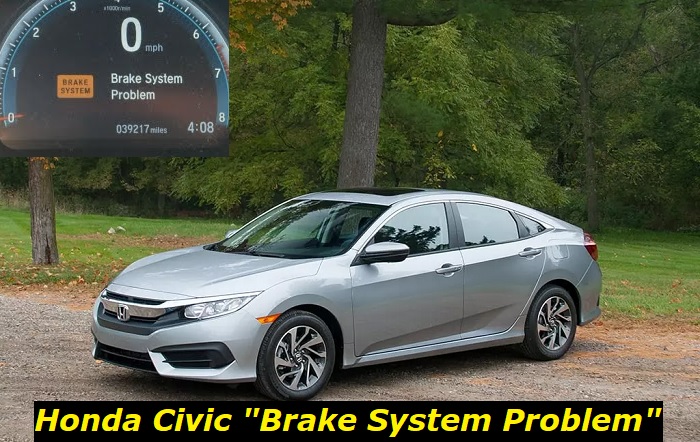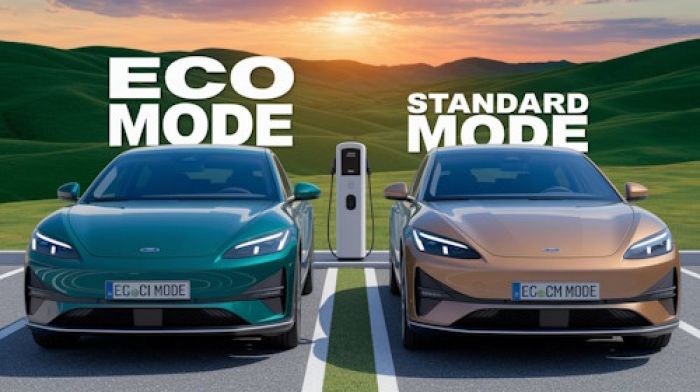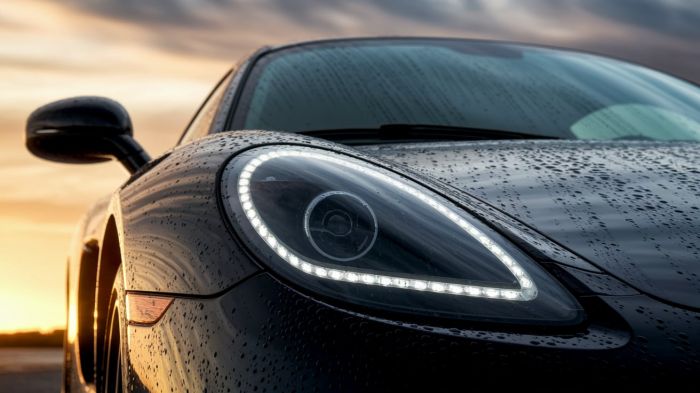There have been a lot of discussions in forums about the "Brake System Problem" associated with Honda vehicles, especially those rolled out in 2018 and after that. One of the products affected by the issue is the Civic, according to numerous customer complaints.
Brake system problem message highlights
- Common reasons:brake fluid low, brake pads thin, EPB problems, bad battery
- How to fix:check the brake fluid level, check the battery, check pads, read the codes
- Possible consequences:you may lose the brakes, be careful
- Priority level:High
- Can you drive?Not recommended
- DIY repair:Possible but complicated
- Repair price range:$150-$500

Quick Fix
Before going further, it should be noted that the information center of Honda advises coming to a complete stop and shifting into neutral in order to reset the brake system. From there, put the parking brake on and turn off the automobile.
Through this method, the electric brake and the motor may communicate properly again, allowing the electric brake to resume its default function. If that does not cut it, it's time to explore other elements that may be activating the "Brake System Problem".
General Diagnosis
If the quick reset doesn't work, the "Brake System Problem" warning in the dashboard of the Honda Civic may be influenced by different factors. Parts indirectly related to the brake system may also be at play here, which can make it harder to narrow down what is really causing the issue.
In the absence of a consensus on what is triggering the "Brake System Problem" in Honda Civic as well as other clues in your dashboard as to what are the other faults contributing to it, one of the best ways to diagnose the issue is by using an OBDII scanner. This will help you determine whether the problem is mechanical or electrical in nature.
When you use an OBDII scanner, you'll be able to view a variety of diagnostic data, including engine speed, fuel consumption, sensors, and various error codes. If you see an error code that indicates a mechanical or electrical fault related to your brakes, this may be the key that will help you pinpoint the cause of the problem.
If there are no codes displayed by your scanner or it is showing too many codes related or unrelated to your brake system, it might be time to bring your car to your nearest Honda service center or to your trusted mechanic for a more thorough investigation of the issue so that the necessary repairs will be made.
Most Common Causes of the "Brake System Problem" in the Honda Civic
According to a majority of Honda Civic owners who have experienced this specific problem and who also have successfully found a solution along the way, here are its most possible causes:
1. Drained Battery
Most complaints pertaining to the "Brake System Problem" in Honda vehicles, in general, have allegedly experienced starting issues, too. Based on their accounts, changing the battery somehow took care of the trouble.
Since the Honda Civic's brake system relies on electrical power to function properly. If the battery is losing power, it may not provide enough energy to operate the brake system properly. This can lead to the brakes not working correctly, or even failing entirely.
Likewise, the car battery provides the electrical current that powers the vehicle's starter motor to turn on the engine. It also powers the lights, radio, and other accessories. If the battery doesn't have enough power, or if it is completely drained, the car won't start.
One way to tell if the battery is losing power is if the headlights are dim or flickering when turned on. Another way to tell is if the car takes a long time to start, or if it doesn't start at all.
If you think your battery may be losing power, you can test it with a voltmeter while the engine is off. A healthy battery should read around 12 volts. If it reads below 12 volts, it merely needs to be charged. If it reads 0 volts, it is completely drained and will need to be replaced.
2. Damaged Fuse
Another electrical component that you should check if you are having a "Brake System Problem" in your Honda Civic is the fuse. The fuse may have become damaged and is no longer providing sufficient power to your car's electrical system. You can check this by looking at the fuse to see if it is blown. If it is, then you will need to replace it.
The best way to tell if the fuse is still good is to test it with a multimeter. Set the multimeter to the ohms setting and check the resistance. If the fuse is still good, then the multimeter should read 0 ohms. If it is blown, then it will show infinite resistance.
If the fuse is indeed the problem, then the solution is to simply replace it with a new one. This is a fairly cheap resolution to the problem, so if you suspect that this part is the root of the issue, just replace it for a good measure.
3. Stuck Electric Parking Brake
There are many times when the "Brake System Problem" is also coupled with a warning related to the electric parking brake (EPB) of the Honda Civic. The EPB is a feature that helps keep the car stationary when parked on an incline.
When the system detects that the EPB is not functioning correctly, it will trigger a warning and prevent the car from being driven. In most cases, this is because the EPB is stuck in the engaged position and needs to be released.
If you find that your Honda Civic is displaying a "Brake System Problem" warning, the first thing you should do is check the EPB. If it is engaged, try pressing the release button on the center console. If this does not work, you may need to physically disengage the EPB by pulling on the release lever located near the parking brake pedal.
Once the EPB is released, you should be able to drive your Honda Civic as normal. However, it is important to get the EPB serviced as soon as possible to avoid any further problems.
Some things can cause the EPB to fail in the Honda Civic. One of the most common is carbon build-up in the brake pads or shoes that may likely prevent them from functioning in accordance with their design. This can happen when the car gets wet, and the brake pads or shoes become coated in mud, dirt, or snow.
If the problem is only caused by the contamination, cleaning the brake pads or shoes may do the trick. However, if the issue has already led to damage to these parts, they will need to be replaced.
Another potential cause of an EPB failure is a faulty release button or switch. In some cases, the release button may become worn out from use and will no longer trigger the EPB when pressed. In this case, the wiring, the button, or the switch may need to be cleared from corrosion or replaced.
One more common cause of EPB failures is overheating. When the EPB is exposed to high temperatures or is having electrical issues, it can overheat and cause problems. When this happens, it is important to allow the EPB time to cool down by parking your car and turning off the engine.
If you are having problems with your brake system and/or electric parking brake, it is important to take your car to a mechanic for service. Failing to do so could lead to further damage and affect the safety of your vehicle.
4. Fault in the Alternator
The alternator is responsible for providing power to the car's electrical system and charging the battery. If the alternator is not working properly, it can cause a number of problems, including the "Brake System Problem" in the Honda Civic.
To diagnose the problem, start by checking the fuse that protects the alternator. If this fuse is blown, it indicates that the alternator is not working properly. Next, check the voltage in the battery. If it is low and your battery is still new or still in good condition, this also indicates that the alternator is not charging the battery properly.
The solution to this problem is to replace the alternator with a new one. This will restore power to the electrical system and ensure that the battery is properly charged.
5. Lubrication Issues
Lastly, the "Brake System Problem" warning light in a Honda Civic can be due to low brake fluid levels. If your brake fluid levels are low, it can make the brakes feel spongy when you depress the pedal. In some cases, it can also cause the brakes to make a grinding noise.
The other possible cause is contaminated brake fluid. If your brake fluid has become dirty, it can lead to the said signs. The easiest way to check for contaminated brake fluid is to look at the color of the fluid. If it is dark brown or black, it is likely contaminated and needs to be replaced.
If you are experiencing either of these problems, the best course of action is to take your Honda Civic to a qualified mechanic or dealer and have them check the brake system. They will be able to diagnose the problem and recommend the best course of action.
In most cases, replacing the brake fluid will solve the problem. However, if the problem is more serious, such as a leak in the brake system, they may need to check the brake lines for the proper flow of the fluids and other factors contributing to the issue.
Conclusion
As shown here, finding the primary cause of the "Brake System Problem" found in the Honda Civic can be a tricky affair. Sometimes, the solution to this is as simple as putting the vehicle in Park mode and turning off its engine for a while before restarting it. In other instances, the issue is made more complicated either by the lack of fault codes linked to it or the presence of multiple fault codes which can make it more confusing to diagnose.
With that, we highly advise seeking the help of a professional mechanic to help you narrow down the problem and apply the necessary solution for it.
About the authors
The CarAraC research team is composed of seasoned auto mechanics and automotive industry professionals, including individuals with advanced degrees and certifications in their field. Our team members boast prestigious credentials, reflecting their extensive knowledge and skills. These qualifications include: IMI: Institute of the Motor Industry, ASE-Certified Master Automobile Technicians; Coventry University, Graduate of MA in Automotive Journalism; Politecnico di Torino, Italy, MS Automotive Engineering; Ss. Cyril and Methodius University in Skopje, Mechanical University in Skopje; TOC Automotive College; DHA Suffa University, Department of Mechanical Engineering






Add comment